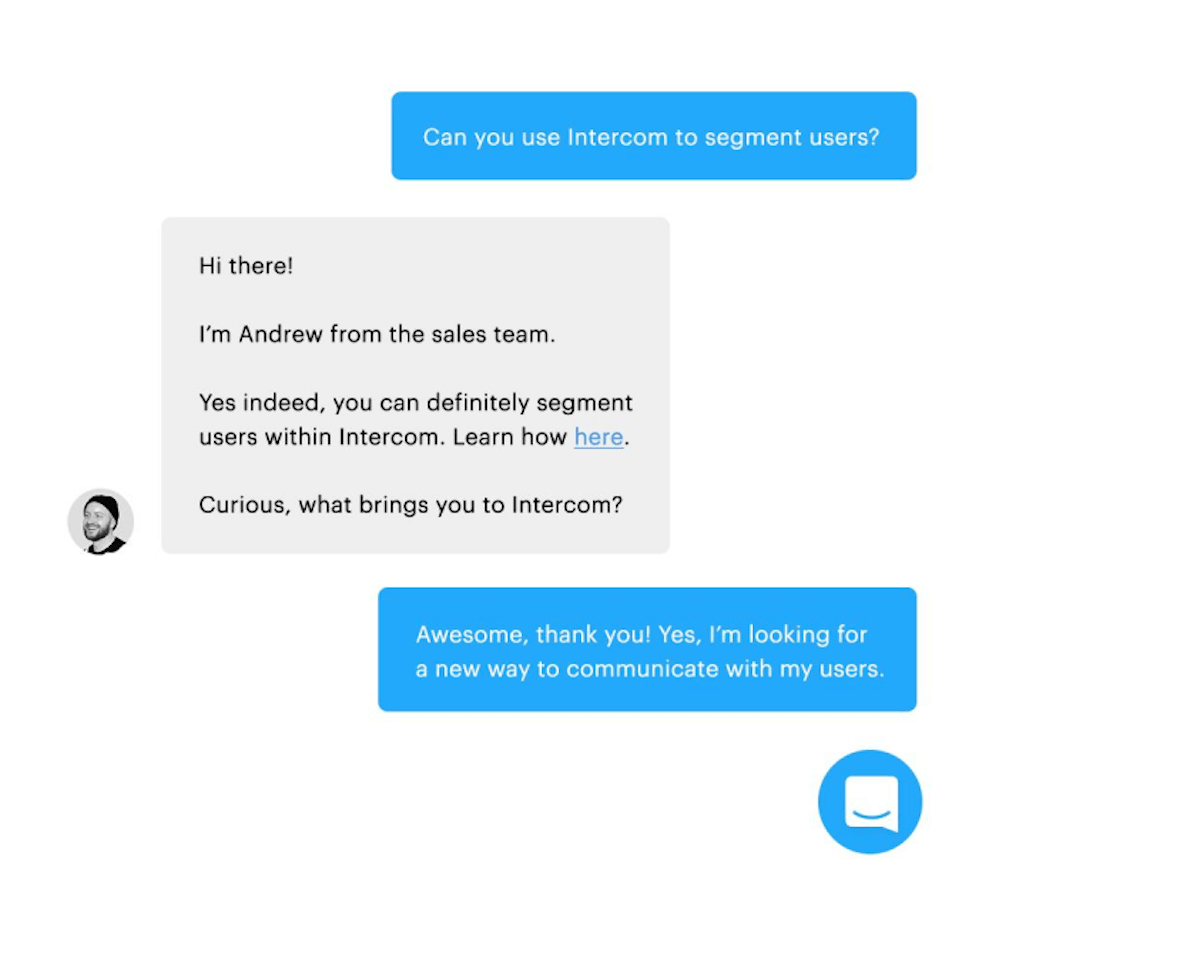
Building a sales team in a high-growth environment
Main illustration: Kristin Raymaker
Getting the team right is one of the hardest parts of scaling sales. Rapid growth means you need a large, high-performing team, and you need it right now. But no sales team can afford to grow without intention.
Many leads’ first meaningful interaction with your business will be a conversation with a salesperson – you have to carefully consider what kind of experience you want that to be, and who will be delivering it.
At Intercom, we think a lot about our values – what they are, when they apply, and how they show up across our teams each day. It’s important for each team to explore what kind of attitudes, behaviors, and beliefs help them to perform at their best and work together seamlessly.
While building a sales team, we’ve focused a lot on our sales culture. Here’s how we went about growing a sales team that is both world class and culture-additive.
Step 1: Create a scalable hiring profile that reflects your company’s values
Start with your non-negotiables. Whether you’re bringing on your tenth or hundredth salesperson, you need to discuss the “must-haves” with your leadership team. Your non-negotiables are your core values and ways of working.
We’ve defined what must stay the same as we onboard more salespeople. These are values that have been core to the company since its earliest days, and many of them drew our first salespeople to Intercom. It comes down to three things:
- We’re customer-first: We value positive customer experiences above all else. We’ll never subject our customers to sub-standard features or half-baked processes just to drive more revenue.
- We’re personal: Our mission is to make business personal, so we’re thoughtful, respectful, and friendly in our communication with prospects. We make data-informed decisions about when, where, and how to talk to leads.
- We value impact: We believe in a culture where people come to work (physically or virtually) to focus, make an impact, and go home at a reasonable hour. It sounds obvious, but it’s surprisingly rare in practice.
You can’t force culture or foster it retroactively within an existing team. In the end, it’s a tapestry of the non-negotiables you hold firm and the behaviors you celebrate. These are the values that need to come first.
Be clear – but not rigid – with your hiring profile
Once your team agrees on its values, you can work on attracting the right talent – those people that will embody the qualities needed to succeed at the company, while adding something new and valuable to your team’s culture.
That said, there’s no one-size-fits-all profile that works for every company or even every hire. You may not know what your team needs until the ideal candidate shows it to you in an interview.
At Intercom, having a diverse team is a priority, and we’re open to candidates who show promise but might not check every box perfectly. That means our hiring profile can bend – but not break.
Here’s what we look for in a salesperson:
- They respect the product. Salespeople don’t need technical backgrounds to sell software, but they do need to be passionate about the product and its value to your customers. Our best candidates are innately curious about how the product could evolve, and care deeply about customer success.
- They’re resilient. Salespeople will be rejected time and time again and will probably fail to win deals more often than not. You want people with a track record of resilience and grit, who are comfortable owning up to past failures and moving forward.
- They care about more than just quota. Great salespeople care deeply about hitting their own quotas, but they care about the team and company too. They raise up fellow salespeople along the way, and they’re fired up to help the team create best practices and scalable processes.
- They don’t rely solely on past playbooks. The best sales hires are comfortable with ambiguity and happy to help create the playbook. This is crucial because high-growth companies have a lot of unknowns. On the flipside, they’ll have opportunities for creative experimentation – hire people who’ll embrace these opportunities.
Step 2: Build a modern sales team
Once you’ve put a foundation in place to hire the best sales talent, it’s important to let them achieve their potential. Because we’ve specified a customer-focused attitude as a necessity in our sales hires, we’ve structured our team around customer-centric sales to cultivate trust and build stronger relationships with our prospects.
Buyers will enter the sales cycle at a variety of different stages – some will have just glanced at your website, some will have read product reviews, some might have completed a free trial. No matter what stage your buyers are at, your sales team needs to be able to meet them there.
We’ve adopted a strategy of consultative, value-based selling – one that is transparent and informative and meets buyers where they are in the purchasing process. We look for:
SDRs who can create value
Historically, the role of the inbound SDR (sales development representative) has been to gather qualification criteria. Their objective was simple: run through a predefined list of questions, and if the prospect is promising enough, pass them to an account executive.
At Intercom, SDRs are doing much more than that. They’re accelerating the sale by offering value to prospects early on. For website visitors who write in through live chat, our SDRs are assessing their use case, sharing educational content and jumping on discovery calls.
Thanks to chatbots, our sales team is automating tasks that used to be manual and repetitive – like lead qualification. Now, when a sales rep connects with a prospect, they’re having a strategic, meaningful conversation about what Intercom can do for that potential customer.

As a result, SDRs are strategic assets to our Sales team, focusing less on repetitive questions and more on building the foundations for a strong customer relationship.
Account executives who bring Intercom’s value to life for our customers
Our account executives work to help our prospects to truly understand the value Intercom can bring to their business; whether that’s saving costs (as a result of reduced support headcount and self-service techniques) or generating revenue (as a result of Intercom’s marketing and sales functionality). Our account executives are obsessed with building ROI for our prospects from the get-go.
All sellers are different, but our top account executives are particularly skilled at:
- ROI-driven discovery
- Deeply understanding our products and how best to leverage them for each customer’s needs
- Building relationships with prospects and delivering an incredible customer experience
- Knowing when to ask for help from our incredible supporting teams
Because this is also a closing role, our AEs need experience in:
- Pitching solutions
- Managing trials
- Driving the purchase
Our sales approach enables prospects to move through the funnel as fast as they’re ready to go. By perpetuating a culture of customer-centric sales, we aim to cultivate trust and build stronger relationships with our prospects. The key is to continually deliver value at every touchpoint, from the first chat with an SDR to the moment the deal is signed.
We’re still growing – join us
Intercom’s going through one of its biggest growth periods yet, and we’re looking for more salespeople to join our incredible team. Do you see yourself in this post? We’d love to talk to you!








